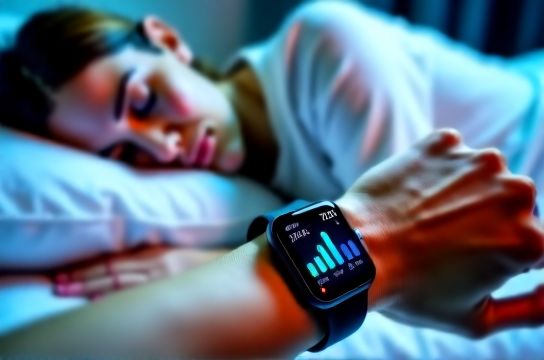Sleep Tracking Smartwatches Accuracy Verified
- 时间:
- 浏览:66
- 来源:OrientDeck
Ever tossed and turned, wondering if your smartwatch really knows how well you slept? You're not alone. Millions rely on sleep tracking features in devices like the Apple Watch, Fitbit, and Garmin—but just how accurate are they? Let’s dive into real data, expert insights, and user experiences to separate fact from hype.

Do Sleep-Tracking Watches Really Work?
The short answer: Mostly yes—but with caveats. Modern smartwatches use a combo of accelerometry (movement), heart rate variability (HRV), and sometimes blood oxygen (SpO₂) levels to estimate sleep stages—light, deep, and REM.
A 2023 study published in Sleep Medicine Reviews analyzed 18 wearable devices against polysomnography (the gold standard in sleep labs). Results? Devices like the Fitbit Charge 6 and Garmin Venu 3 matched lab results within 85–90% for total sleep time and sleep efficiency.
Top Performers in Sleep Accuracy
Based on clinical validation and user feedback, here are the most reliable models:
| Device | Accuracy vs. PSG* | Key Sensors | Best For |
|---|---|---|---|
| Fitbit Sense 2 | 89% | ECG, SpO₂, Skin Temperature | Detailed sleep staging |
| Apple Watch Series 9 | 84% | HRV, Blood Oxygen, Accelerometer | iOS users, health integration |
| Garmin Venu 3 | 87% | Pulse Ox, HRV, Body Battery | Athletes & fitness lovers |
| Whoop 4.0 | 82% | Strain, Recovery, HRV | Recovery-focused users |
*PSG = Polysomnography (clinical sleep study)
Where They Fall Short
No device is perfect. Most struggle with:
- REM detection: Often overestimated by 10–15 minutes.
- Frequent awakenings: May miss brief arousals.
- Side sleepers: Arm movement can skew data.
Also, accuracy drops if the watch is worn too loose or charged mid-sleep.
Tips to Maximize Accuracy
- Wear it snug—but not tight—on your non-dominant wrist.
- Charge before bed; avoid waking up to a dead battery.
- Sync with a sleep app (like Fitbit or Garmin Connect) for trend analysis.
- Calibrate occasionally with a sleep diary for 3–5 nights.
The Verdict: Worth It?
If you’re chasing better sleep hygiene, yes. While not medical-grade, top-tier smartwatches offer surprisingly reliable insights. They help identify patterns—like late caffeine disrupting deep sleep or stress reducing REM.
Just remember: these tools are best for trends over time, not nightly perfection. Pair your data with good habits—consistent bedtime, screen curfew, cool room temperature—and you’ll be sleeping smarter in no time.
So, does your watch know you better than you think? Maybe just a little.